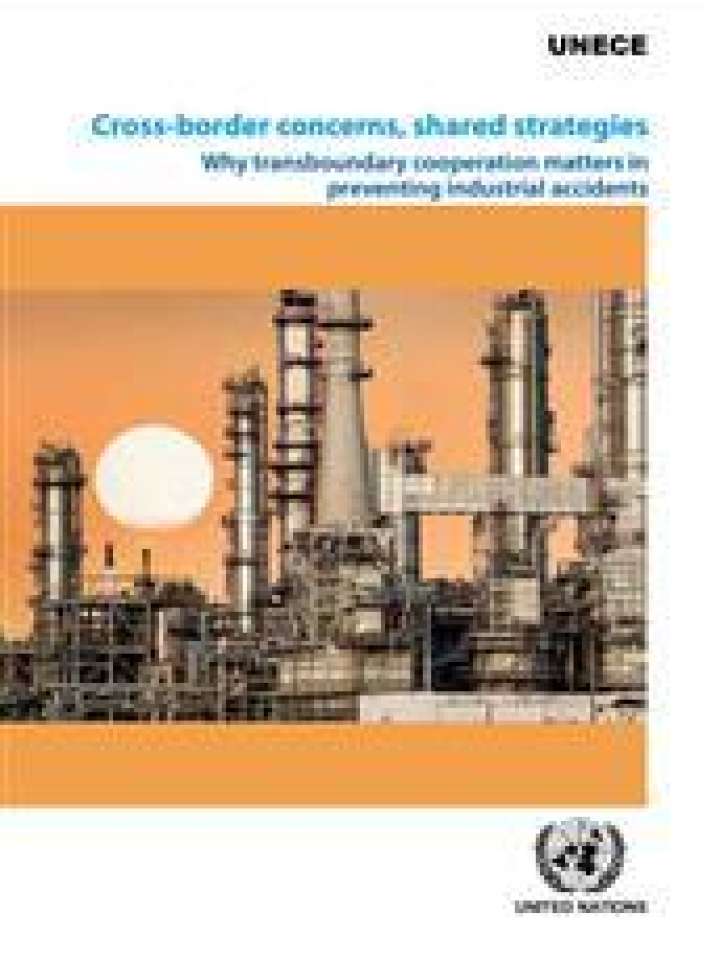Cross-border concerns, shared strategies
Why transboundary cooperation matters in preventing industrial accidents
It discusses how the UNECE Industrial Accidents Convention (referred to as The Convention) can help to prevent industrial accidents, especially those with transboundary effects, and to prepare for and respond to such accidents if they occur.
The document provides background information about industrial accidents in Europe as well as information on three overlapping international agreements: The Convention, the 2030 Agenda for Sustainable Development and the Sendai Framework for Disaster Risk Reduction. It recommends the following actions:
- Deepening cooperation between countries through more effective agreements, contingency plans, capacity development, training and practical exercises;
- Conducting further research into good practice and encouraging higher safety standards and measures;
- Ensuring transparency and accountability in the operation of hazardous activities, through awareness-raising and free-flowing information;
- Further supporting countries in transposing the Convention’s provisions into national legislation and integrating them in industrial operations through targeted training, capacity development and knowledge sharing 20 United Nations Economic Commission for Europe;
- Continuing support for countries that face challenges in joining the Convention;
- Helping Parties to implement the provisions of the Convention in order to contribute to meeting the SDGs and the priorities of the Sendai Framework;
- Establishing strategic partnerships in support of all of the objectives stated above.
Deepening cooperation is the most effective approach for preventing, preparing for and responding to industrial accidents and their costly cross-border effects.
Explore further
